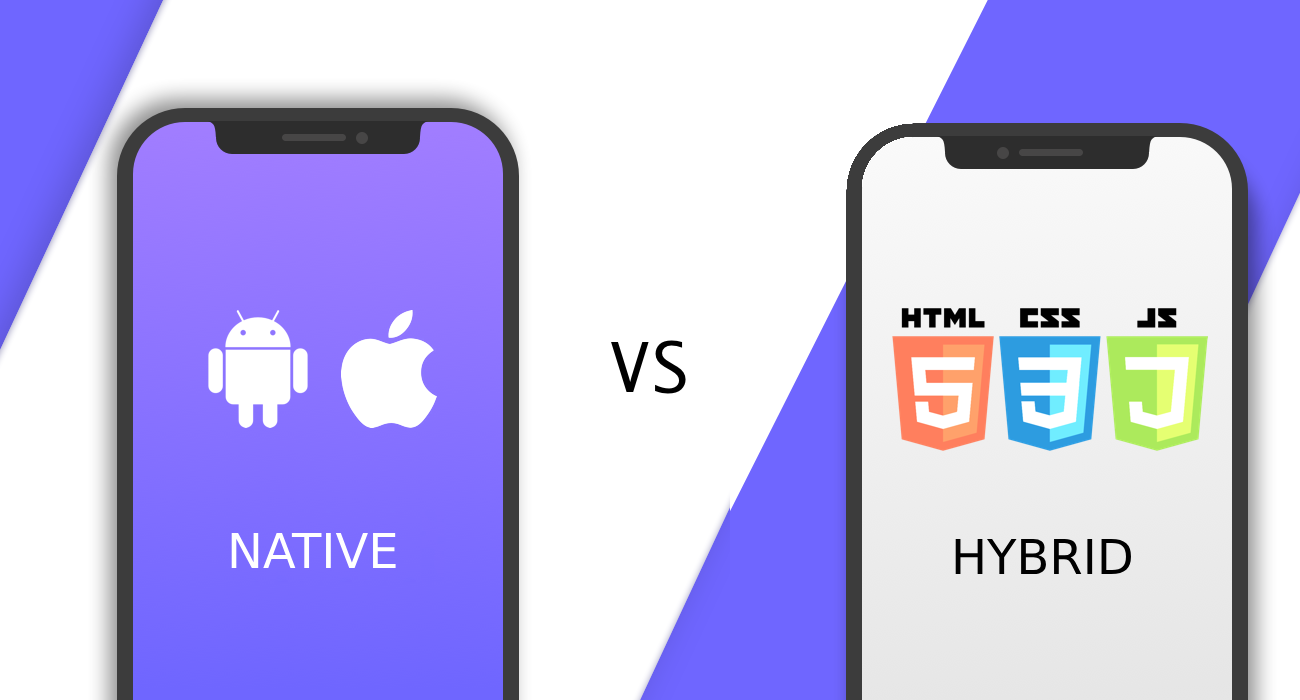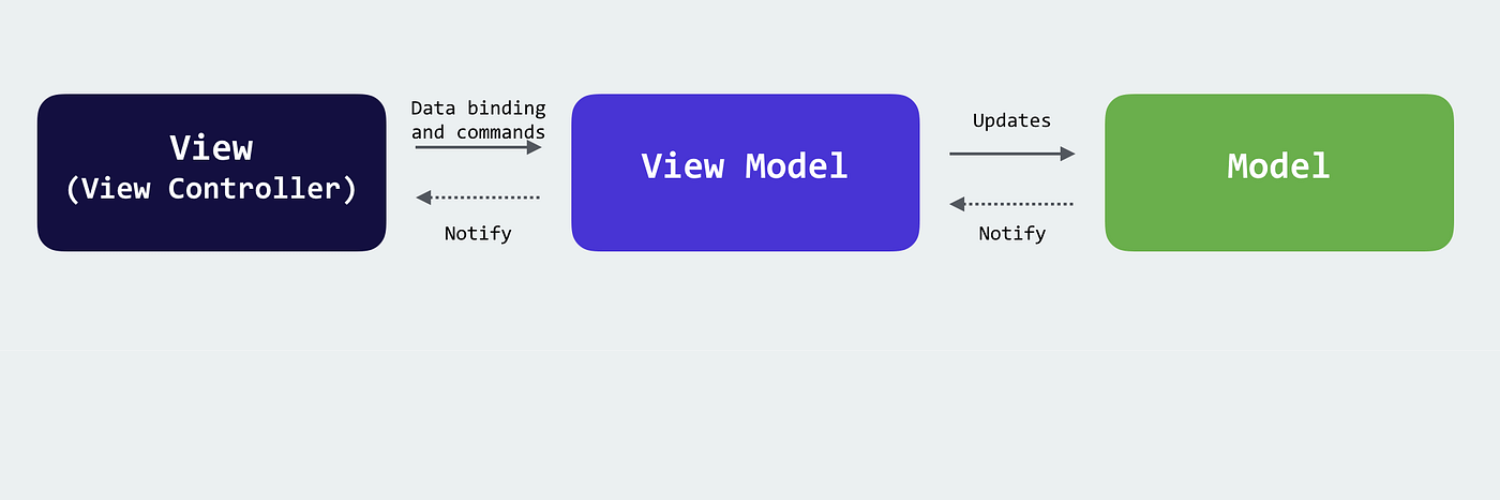In today’s digital era, where convenience and quick access are the benchmarks of consumer satisfaction, having a mobile app is a necessity for any business aiming to thrive in this competitive environment. From entertainment and communication to productivity and commerce, mobile apps have revolutionized the way we interact with technology.
From enhancing customer engagement with push notifications to gathering insightful user data and facilitating a seamless e-commerce experience, mobile apps are the essential tool for businesses seeking to set their digital presence and drive growth. Whether it's for making purchases, accessing services, or simply staying informed, mobile apps serve as the critical touchpoint between a business and its customers.
For businesses, mobile apps offer a unique opportunity to connect with their target audience in a direct and personalized way. By offering convenience, accessibility, and a seamless user experience, mobile apps can benefit businesses in several ways:
Increased reach and visibility
Mobile apps allow businesses to reach their customers where they are—on their smartphones. With over 6.37 billion people using smartphones worldwide, having a mobile app can help businesses expand their reach and visibility significantly.
Improved customer engagement
Mobile apps provide businesses with a direct channel to communicate with their customers and keep them engaged. Through push notifications, in-app messaging, and other features, businesses can promote new products and services, offer exclusive discounts, and provide customer support.
Valuable data insights
Mobile apps can help businesses gather valuable data about their customers' behavior and preferences. This data can be used to improve products and services, personalize marketing campaigns, and make better business decisions overall.
Enhanced brand awareness
A well-designed and user-friendly mobile app can help businesses strengthen their brand image and stand out from the competition.
In this blog post, we delve into why every company, regardless of size or sector, must integrate a mobile application into their business strategy. We'll discuss the transformative impact of mobile apps on customer interaction, the infusion of efficiency and value they bring to the consumer experience, and the competitive edge they provide in a marketplace that is increasingly gravitating towards mobile-first approaches.
Market demand for mobile apps
The demand for mobile apps is growing rapidly, and businesses of all sizes are investing in mobile app development.
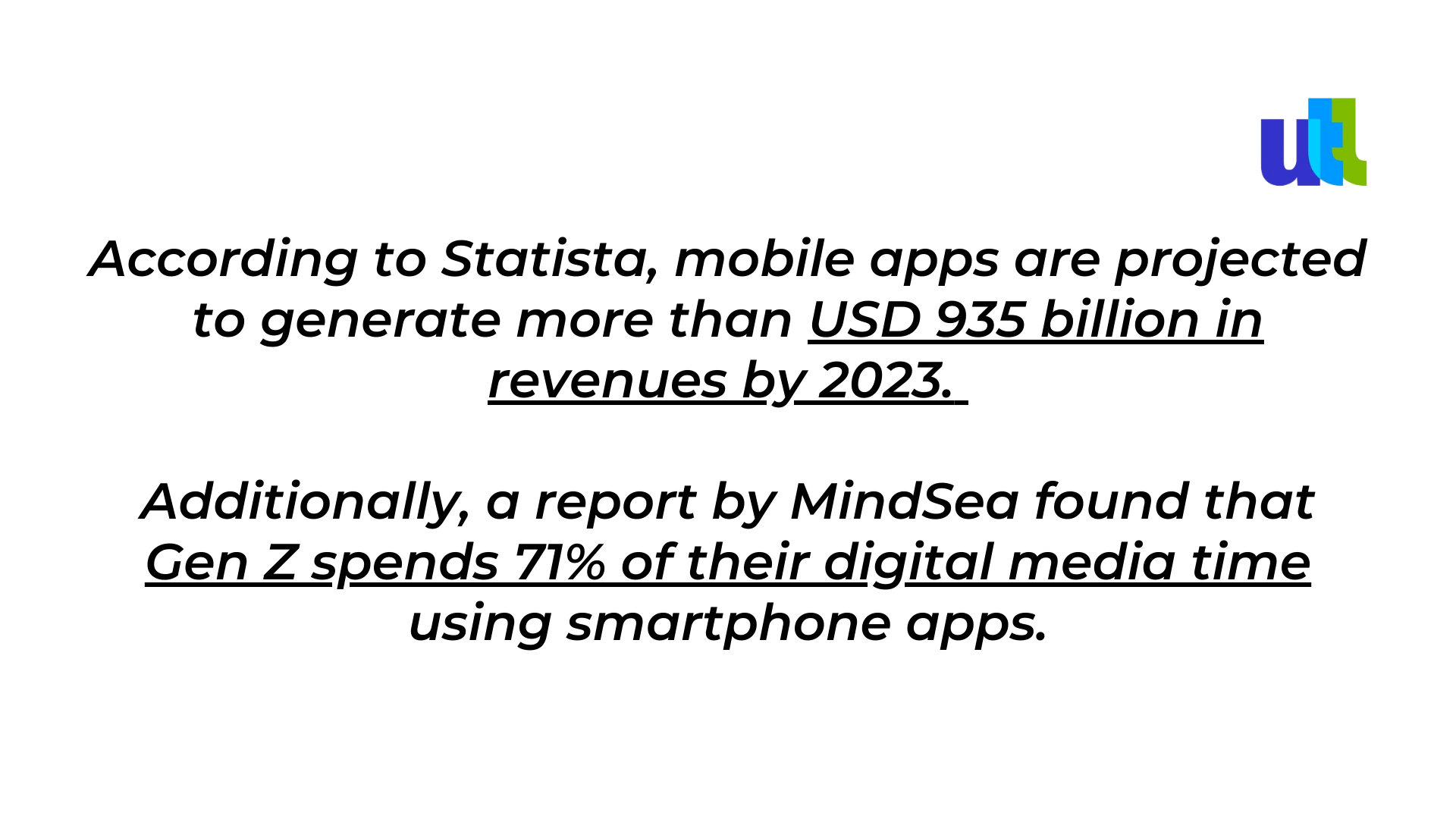
The increase in mobile app adoption suggests that incorporating one for your business, regardless of its size and sector, is a wise investment for the future. Mobile apps are more than just a digital trend; they are a marketing vehicle, enhancing visibility and customer outreach with originality and early engagement. The anticipated rise in app development reflects a broader shift in lifestyle where apps are not merely convenient but necessary for modern living.
These numbers clearly show the importance of mobile apps for businesses of all sizes. If your business does not have a mobile app, you are missing out on a valuable opportunity to connect with your customers and grow your business.
Mobile apps are evolving to meet the demands of a lifestyle that integrates technology seamlessly. They support businesses in delivering potent messages and offers, converting leads, and fostering customer loyalty with exclusive promotions. Apps like Uber have capitalized on this, reinforcing the efficacy of mobile-first strategies. Furthermore, apps provide valuable consumer insights, enabling businesses to capture and analyze customer data, which in turn, informs targeted marketing strategies and personalized user experiences. As mobile app development pushes forward, it's evident that businesses that adapt to this digital movement are poised for success.
Helping small businesses in the industry
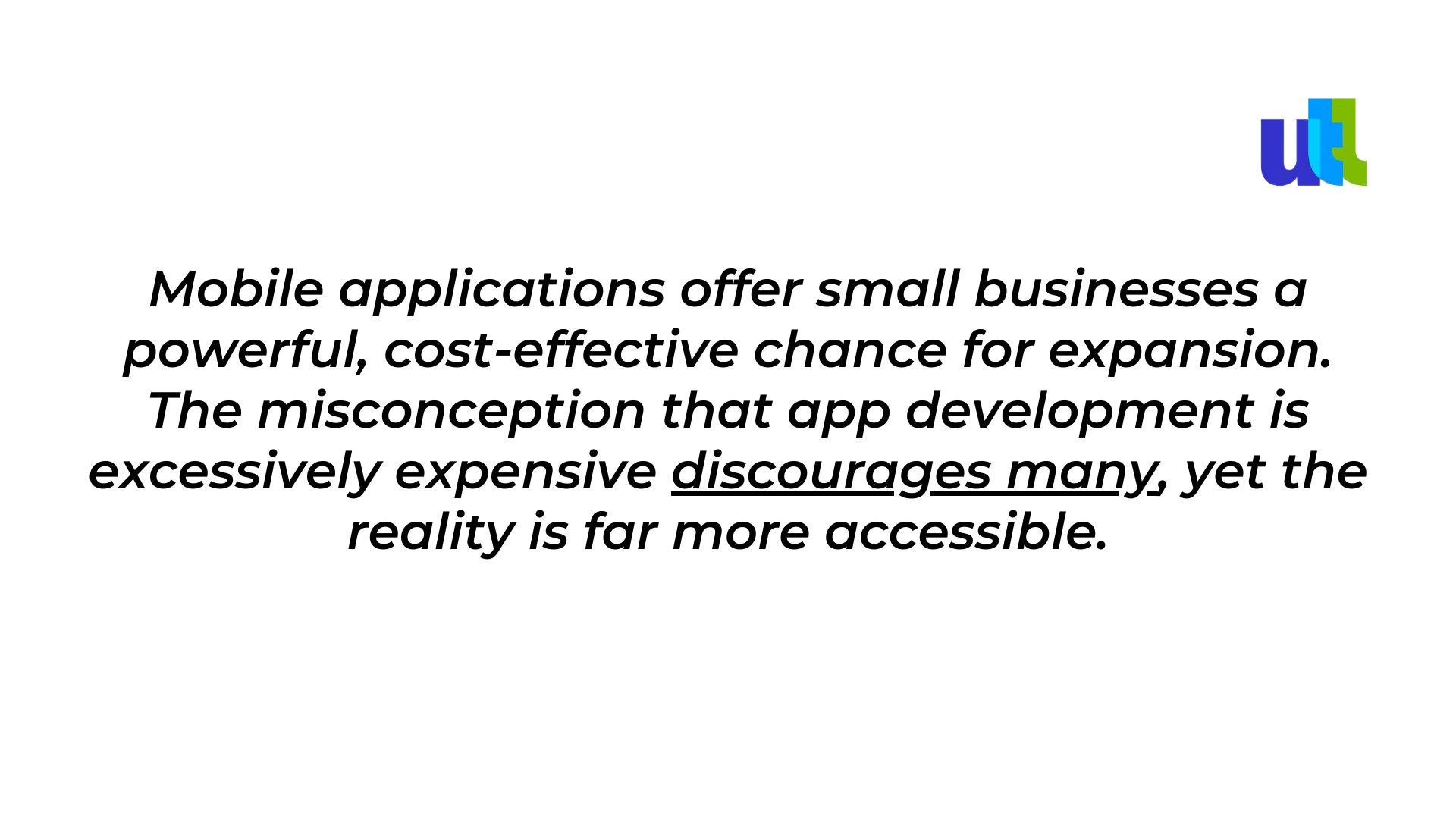
For businesses that embrace this technology, the rewards are significant, offering a significant competitive edge in industries where many still fail to maximize their app's potential, or lack one entirely.
Utilizing mobile apps, companies can gather vital metrics such as visitor numbers, popular products, and user engagement times—data that is critical for shaping effective marketing and targeted advertising strategies. Apps serve as the gateway to brand identity, showcasing services and products while simultaneously facilitating cost-efficient promotions.
The rise in app usage has not gone unnoticed by industries eager to increase their customer base. Mobile apps simplify engagement, making them an invaluable tool for audience development, particularly for emerging businesses seeking to solidify their market presence.
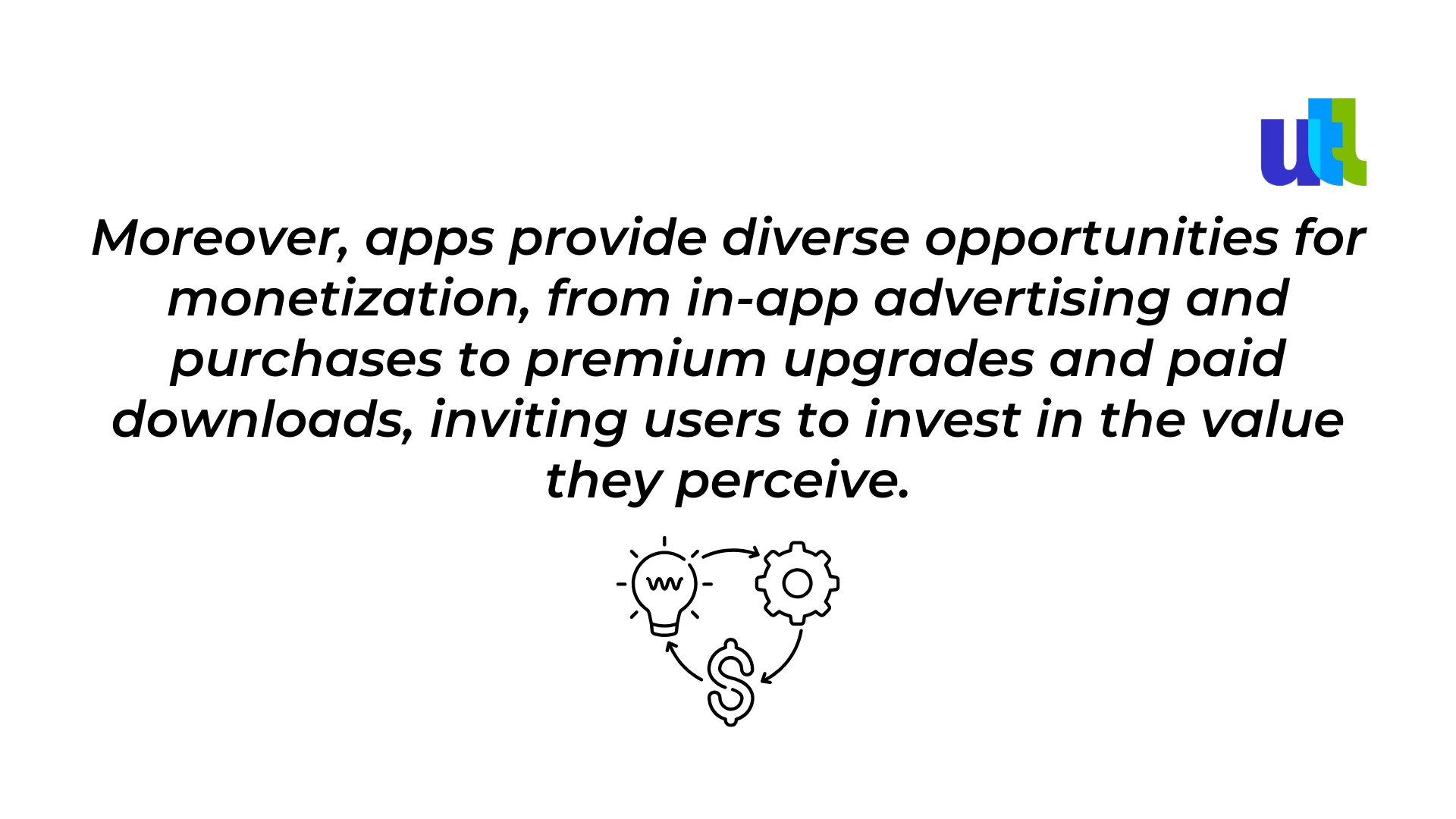
The effectiveness of push notifications is undeniable, with statistics showing a substantial opt-in rate, significantly outpacing traditional marketing channels like email. Such direct communication ensures customers remain informed about the latest offerings and deals.
Personalization through apps fosters a unique user experience, transforming the impersonal 'visitor' status to that of a 'resident,' creating a sense of belonging and individual attention. This personal touch is backed by extensive research highlighting its impact on user satisfaction.
Social media integration extends the reach of business apps, leveraging the power of networks to engage clients globally. By embedding social features such as likes, shares, and comments within the app, businesses can encourage users to become brand ambassadors amongst their peers.
Finally, the importance of secure payment options cannot be overstated, particularly for industries reliant on online transactions. Mobile apps that offer robust security in payments not only win customer trust but also underscore the app's role in driving both convenience and profitability for businesses of all scales.
Mobile apps for small businesses can be a blessing keeping in mind the fact that using apps as a tool for growth is extremely cheap. Most businesses are skeptical because they don’t know how much it costs to make an app and eventually assume it costs a lot. However, that’s not the case. Once it is developed, a mobile app for business is the best tool for growth.
How to get started with mobile app development?
Embarking on mobile app development is an exciting venture that can significantly enhance your business's reach and efficiency. The first step is rigorous market research to pinpoint your target audience, understand their needs, and identify the unique selling proposition your app will offer. This research will inform the selection of the right platform for your app, with Android offering customization and iOS known for user-friendliness and security. Your choice will reflect your target market's preferences and your business's technical capabilities.
Designing your app is the next pivotal stage, where wireframes, mockups, and user personas become blueprints for the user experience. When it comes to development, you have the option to manage it in-house or to collaborate with a seasoned app development company, which can bring expertise and innovation to your project.
Testing is crucial to iron out any bugs and to refine the user interface based on feedback, ensuring your app’s stability and intuitiveness. Preparing for launch, you'll need to submit your app to the appropriate app stores and execute a well-crafted marketing strategy to generate buzz and attract users.
While the costs of app development can be a concern, especially for smaller businesses, understanding the breakdown of expenses helps in planning your investment. The cost will vary depending on the app's complexity, desired features, and chosen platform, but it's a scalable investment that can produce substantial returns.
To sum up
In summary, developing a mobile app is a complex process that demands a clear understanding of your market, a strategic choice of platform, meticulous design and development, thorough testing, and strategic marketing. With the right approach and resources, even small businesses can leverage the power of mobile apps to expand their customer base and secure a competitive edge in today's digital marketplace.
For free consultation on mobile app, click here.
----------------------------------------------------------------------------------------------
View the full presentation:
WRITTEN BY
Milda Butkeviciute
2023-11-20








